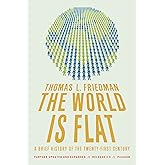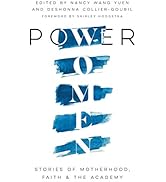
Enjoy fast, free delivery, exclusive deals, and award-winning movies & TV shows with Prime
Try Prime
and start saving today with fast, free delivery
Amazon Prime includes:
Fast, FREE Delivery is available to Prime members. To join, select "Try Amazon Prime and start saving today with Fast, FREE Delivery" below the Add to Cart button.
Amazon Prime members enjoy:- Cardmembers earn 5% Back at Amazon.com with a Prime Credit Card.
- Unlimited Free Two-Day Delivery
- Streaming of thousands of movies and TV shows with limited ads on Prime Video.
- A Kindle book to borrow for free each month - with no due dates
- Listen to over 2 million songs and hundreds of playlists
- Unlimited photo storage with anywhere access
Important: Your credit card will NOT be charged when you start your free trial or if you cancel during the trial period. If you're happy with Amazon Prime, do nothing. At the end of the free trial, your membership will automatically upgrade to a monthly membership.
Buy new:
-45% $16.91$16.91
Ships from: Amazon Sold by: Nova Books and Gifts
Save with Used - Good
$14.87$14.87
Ships from: Amazon Sold by: Dreamboat Deals

Download the free Kindle app and start reading Kindle books instantly on your smartphone, tablet, or computer - no Kindle device required.
Read instantly on your browser with Kindle for Web.
Using your mobile phone camera - scan the code below and download the Kindle app.

Great Commission Companies: The Emerging Role of Business in Missions Paperback – February 9, 2011
Purchase options and add-ons
Business as mission has emerged as a significant new model for mission in the twenty-first century. Today's globalized economy has created strategic opportunities for Christian business enterprises in some of the most unlikely corners of the world.In this landmark book, economist Steve Rundle and missiologist Tom Steffen offer their paradigm for the convergence of business and missions--the Great Commission Company. Such companies intentionally create businesses in strategic locations, pursuing profits while remaining unabashedly Christian in their purpose. By establishing authentic businesses that employ local workers among the least-reached peoples of the world, they contribute to the economic health of the immediate community and also provide avenues for both physical and spiritual ministry. In an era where multinational corporations have global influence and impact, the Great Commission Company opens up new possibilities for missions-minded entrepreneurs and businesspeople who want to change the world to the glory of God.This revised and expanded edition provides new and updated case studies of Great Commission Companies in diverse contexts around the world.
- Print length240 pages
- LanguageEnglish
- PublisherIVP
- Publication dateFebruary 9, 2011
- Dimensions6 x 0.8 x 9 inches
- ISBN-100830838279
- ISBN-13978-0830838271
Book recommendations, author interviews, editors' picks, and more. Read it now
Frequently bought together

Customers who viewed this item also viewed
From the brand

-
Women's History Month
-
Prepare for Lent
-
Meet Saint Patrick
-
Start a New Bible Study
-
Recommended Books
-
Books to Read with Your Kids
-
Ebooks on Sale
-

Who Are We?
Since 1947, InterVarsity Press (IVP) has been publishing thoughtful Christian books that shape both the lives of readers and the cultures they inhabit. Throughout these seventy-five years, our books and authors have established a legacy of speaking boldly into important cultural moments, providing timeless tools for spiritual growth, and equipping Christians for a vibrant life of faith.
Editorial Reviews
Review
"The authors have done an exceptional job defending and explaining the BAM model and have provided a book that combines the best of the technical side of business with the missional heartbeat of Great Commission Christians. . . . Great Commission Companies is a must read for churches supporting BAM, investors with a Great Commission desire, mission agencies, and current and potential BAM entrepreneurs."
-- Anthony Case, The Great Commission Research Journal, Winter 2012"Steve Rundle has done more research on the emerging phenomenon of Business as Mission (BAM) than virtually any other academic leader. This updated edition of Great Commission Companies adds welcome dialogue on the basic definitions of this still-new movement, the things that unite and divide it, and the huge potential in what he calls the 'promise and peril of kingdom business.' With new case studies, Rundle and Steffen expose us to even more applications of BAM which will, I think, encourage even more exploration and experimentation in the field. GCC is part of my core library of recommendations for anyone wanting to learn about God's plans for business."
-- Michael R. Baer, entrepreneur, BAM practitioner and author of Business as Mission (YWAM Publishing)"Business as Mission (BAM) is a global movement with a major focus on the Arab world and Asia. Rundle and Steffen's book gives a most helpful introduction to BAM, identifying key issues, clarifying key terms and conveying important lessons learned. This book is essential."
-- Mats Tunehag, senior associate for Business as Mission for the Lausanne Movement and the World Evangelical Alliance"The original publication of Great Commission Companies by Steve Rundle and Tom Steffen was a seminal breakthrough that stirred--no, catapulted--a whole new generation into an understanding of how Christian-led businesses can be used by God for kingdom building in a hurting, needy world."This revised and updated version is equally powerful. It takes the entire genre of literature on the Business as Mission movement (BAM) another bold step forward, in three highly significant ways: First, it explores the unparalleled opportunities for Christian mission through business that have resulted from globalization; second, it makes a convincing case (which is counterintuitive to most Christians in the pews) for Christian support of international trade; and third, it gives an unprecedented ten-year perspective on GCCs that are actually doing the Lord's work on the field."Rundle and Steffen have hit a home run and it will be required reading for all of my young Christian entrepreneurial students who want to do mission through business."
-- C. Neal Johnson, professor of business and management at Hope International University and author of Business as Mission"This is a remarkable book. Two street-smart business professionals grounded in a contemporary holistic biblical theology have demonstrated that income-producing businesses managed by 'kingdom professionals' can play a central, essential role in extending Christ's kingdom worldwide. Rundle and Steffen have plowed much-needed, new ground for all who take the kingdom seriously."
-- James F. Engel, coauthor, Changing the Mind of MissionsReview
"This is a remarkable book. Two street-smart business professionals grounded in a contemporary holistic biblical theology have demonstrated that income-producing businesses managed by 'kingdom professionals' can play a central, essential role in extending Christ's kingdom worldwide. Rundle and Steffen have plowed much-needed, new ground for all who take the kingdom seriously."
-- James F. Engel, coauthor, Changing the Mind of MissionsAbout the Author
Steve Rundle is associate professor of economics and business as mission at Biola University in La Mirada, California. His teaching and research interests are focused on the intersection between international economics and faith-based business. He is also the editor of Economic Justice in a Flat World: Christian Perspectives on Globalization.
Tom Steffen is professor of intercultural studies at Biola University in La Mirada, California, where he directs the Doctor of Missiology program. He was a missionary to the Philippines for fifteen years, and he is the author of a number of books on missions and crosscultural ministry.
Product details
- Publisher : IVP; Revised, Revised edition (February 9, 2011)
- Language : English
- Paperback : 240 pages
- ISBN-10 : 0830838279
- ISBN-13 : 978-0830838271
- Item Weight : 14.4 ounces
- Dimensions : 6 x 0.8 x 9 inches
- Best Sellers Rank: #1,218,884 in Books (See Top 100 in Books)
- #1,433 in Christian Business & Professional Growth
- #1,707 in Christian Missions & Missionary Work (Books)
- Customer Reviews:
About the author

Discover more of the author’s books, see similar authors, read book recommendations and more.
Customer reviews
- 5 star4 star3 star2 star1 star5 star74%18%8%0%0%74%
- 5 star4 star3 star2 star1 star4 star74%18%8%0%0%18%
- 5 star4 star3 star2 star1 star3 star74%18%8%0%0%8%
- 5 star4 star3 star2 star1 star2 star74%18%8%0%0%0%
- 5 star4 star3 star2 star1 star1 star74%18%8%0%0%0%
Customer Reviews, including Product Star Ratings help customers to learn more about the product and decide whether it is the right product for them.
To calculate the overall star rating and percentage breakdown by star, we don’t use a simple average. Instead, our system considers things like how recent a review is and if the reviewer bought the item on Amazon. It also analyzed reviews to verify trustworthiness.
Learn more how customers reviews work on AmazonCustomers say
Customers find the book to be a great read, with one mentioning it provides detailed looks at several companies. The book receives positive feedback for its sex life, with one customer noting how it breaks down how companies can fulfill Matthew's Great Commission, while another appreciates its holistic approach to life, business, and ministry.
AI-generated from the text of customer reviews
Select to learn more
Customers find the book to be a great read, with one mentioning it provides useful cases to learn from.
"...Holistic approach to life/business/ministry. Highly recommend reading this book and encourage others to consider if God is calling you to a..." Read more
"Contemporary reading and great cases to learn from." Read more
"One word, Awesome. Really breaks down how companies can fulfill Mathew 28...." Read more
"Good read..." Read more
Customers appreciate the book's approach to integrating faith and business, with one customer highlighting its detailed examination of various companies and another noting how it breaks down Matthew 28:19-20.
"Excellent survey of current Business As Mission approach to missions. Transformative. Insightful view of Paul's purpose in tent making...." Read more
"One word, Awesome. Really breaks down how companies can fulfill Mathew 28...." Read more
"This book contains inspiring and practical help for a person wanting to start a company that serves God...." Read more
"Great case studies." Read more
Top reviews from the United States
There was a problem filtering reviews. Please reload the page.
- Reviewed in the United States on June 18, 2014Excellent survey of current Business As Mission approach to missions. Transformative.
Insightful view of Paul's purpose in tent making.
Weak on the 'how to' and risks of starting a business but this is not the intent of the book.
1/2 the book is a detailed look at several companies - evaluating their strengths, weaknesses, & effectiveness.
Holistic approach to life/business/ministry.
Highly recommend reading this book and encourage others to consider if God is calling you to a life of service in this way.
- Reviewed in the United States on February 20, 2020Contemporary reading and great cases to learn from.
- Reviewed in the United States on February 5, 2016One word, Awesome. Really breaks down how companies can fulfill Mathew 28. Highly recommend it to anyone who is looking to expand the gospel through globalization.
- Reviewed in the United States on March 4, 2013This book contains inspiring and practical help for a person wanting to start a company that serves God. It presents the ups and downs that may be encountered and also presents examples of remedies for various situations.
- Reviewed in the United States on August 9, 2018Textbooks
- Reviewed in the United States on December 7, 2014Great case studies.
- Reviewed in the United States on February 6, 2013Unless I'm unaware of one, this is the best of its kind--a study of actual Business as Mission companies which are seeking to integrate the Great Commission into their business in various ways. Rundle and Steffen seek to analyze and evaluate these against key Biblically based objectives and standards to move forward our thinking about Christians running businesses as Great Commission-Kingdom committed people. And they are specifically looking at the impact and potential of such companies extending the gospel through planting growing church movements.
The concrete, well-researched stories and their analysis are very helpful. They provide us with much more than interesting stories of how businesses can be used in Christian missions and bless people. They look at the range of issues involved in starting and running such businesses--starting them in business-challenging countries, bureaucracy, corruption, work ethics, profit and being self-sustaining, integrity, integrating faith and witness into business, and more.
It is unfortunate that Scott Hedley mistakes this books as "building on Neal Johnson's Business as Mission" and also downgrades his review of the book based on 3 misplaced, perhaps misunderstood, points. The book actually preceded Johnson's book, designed as a textbook. This Great Commission Companies is a 2nd edition.
Now let me respond to Hedley's 3 negative points:
1. He "disagree(s) with the authors' decision to classify companies as either Christian or non-Christian (59). The terms 'companies owned and/or managed by Christians' and "companies owned and/or managed by non-Christians" would communicate more clearly. It is not the companies that are Christian; it is the owners and leaders who are."
This seems nitpicking and certainly is incredibly cumbersome. In reality, a company owned and run by Christian(s) is a Christian company and it is precisely the people leading it who make it so.
2. "The authors frequently referred to an outdated mission strategy paradigm called the 10/40 window (19, 21, 71). This paradigm is outdated because it focuses on political nations rather than ethno-linguistic or people-groups. I believe that the completion of the Great Commission of Matthew 28:18-20 requires a focus on unreached people groups rather than political nations, as Ralph Winter argued."
The 10/40 Window is hardly outdated and still used as a shorthand for the nations with the most unreached peoples. Its purpose is not to reduce multiple peoples to single nations, but to provide a quick, broad picture of the size, geography, and challenge of the task.
3. "The authors state that "sustainable economic change requires shedding a worldview of cheating, corruption, and cronyism and replacing it with one that encourages transparency, honesty, and respect for authority" (58). Yet they did not identify any country that has shed that worldview because there is no country which is completely transparent, honest, and respectful of authority. The fact that there is no place like this could lead one to mistakenly conclude that BAMs and GCCs cannot thrive anywhere because this worldview does not really exist anywhere.
On this one it seems Hedley has simply missed the authors. Their whole point is that great commission business-people must run their companies in submission to Christ which can change the culture. Great commission companies must follow Biblical moral/ethical standards in running their business and so help bring about the long-term cultural transformation that produces the blessing of sustainable economic change. Despite the cost, this is integral to the big calling God assigns to Great Commission business-people.
In dealing with great commission companies, they help us to think more deeply about what it means to use business in missions and how we go about being effective models and witnesses as a natural and thoughtful expression of our life and faith in Christ so that people see him and hear his message through those running the business. Further, they help us be intentional about mentoring and discipling those who respond to Christ into effective, growing churches. They do not claim to have all the answers, but they provide some excellent direction and help us to be more serious and honest about running our businesses as real kingdom outposts.
- Reviewed in the United States on January 12, 2013Great Commission Companies: The Emerging Role of Business in Missions. By Steve Rundle
and Tom Stefffen. 2nd edition. Downers Grove, Illinois, USA, InterVarsity Press 2011. Pp. 240.
$20.00.
Reviewed by Scott Hedley, Bible translator in Asia
Building on work like C. Neal Johnson's Business as Mission, Rundle and Stefffen's book
addresses a subset of BAMs that they refer to as "Great Commission Companies" or GCCs.
GCCs are larger BAM companies that operate with sizable number of employees and greater
resources, and are often managed through executive leadership teams.
I liked this book but I should first mention some of my concerns about it. First, I disagree
with the authors' decision to classify companies as either Christian or non-Christian
(59). The terms "companies owned and/or managed by Christians" and "companies owned
and/or managed by non-Christians" would communicate more clearly. It is not the companies
that are Christian; it is the owners and leaders who are. Second, the authors frequently
referred to an outdated mission strategy paradigm called the 10/40 window (19, 21, 71). This
paradigm is outdated because it focuses on political nations rather than ethno-linguistic or
people-groups. I believe that the completion of the Great Commission of Matthew 28:18-20
requires a focus on unreached people groups rather than political nations, as Ralph Winter
argued. Third, the authors state that "sustainable economic change requires shedding a
worldview of cheating, corruption, and cronyism and replacing it with one that encourages
transparency, honesty, and respect for authority" (58). Yet they did not identify any country
that has shed that worldview because there is no country which is completely transparent,
honest, and respectful of authority. The fact that there is no place like this could lead one to
mistakenly conclude that BAMs and GCCs cannot thrive anywhere because this worldview
does not really exist anywhere.
Despite these concerns, this book is interesting, especially because the second half highlights
actual case studies of GCC businesses. Anyone seriously considering starting a BAM
or GCC needs to read case studies like these. The authors start by describing the Silk Road
Handicraft Company, whose employees planted eight churches in a region of Central Asia.
The aspect of this chapter that I liked the most was that Jefff Nolan, the founder, decided to
make prayer "organic to the company" by taking everything - machinery problems, personnel
problems, cash-flow problems, and every employee - before the Lord. Then they started
to see remarkable changes in the company atmosphere.
Other interesting case studies include that of Little Texas, a Texas-style restaurant and
hotel located in Romania. It became an instant success due to pent up demand for American-
style food in Romania, and there is an interesting story of how Jeri Little, the founder of
Little Texas, helped another Romanian BAM get established (164). John Larson, founder of
GEMS, outlines several best practices for BAMs (182-186) which should be reviewed by anyone
considering starting a BAM. Olive Technology impressed me because of the enthusiasm
of its young Indian founder. His company held many professional certifijications in the fijield.
But they also created two evangelistic websites for Indians, one for pre-evangelism and one
which takes seekers to the next level. The chapter entitled "Pura Vida Cofffee" focused on
a cofffee BAM. But I was most intrigued by the founder's previous business experience. He
started a birthday cake delivery service and a bicycle billboard advertizing company called
Bike Boards.
The intended audience of this book is anyone planning to start or operate a BAM.











































